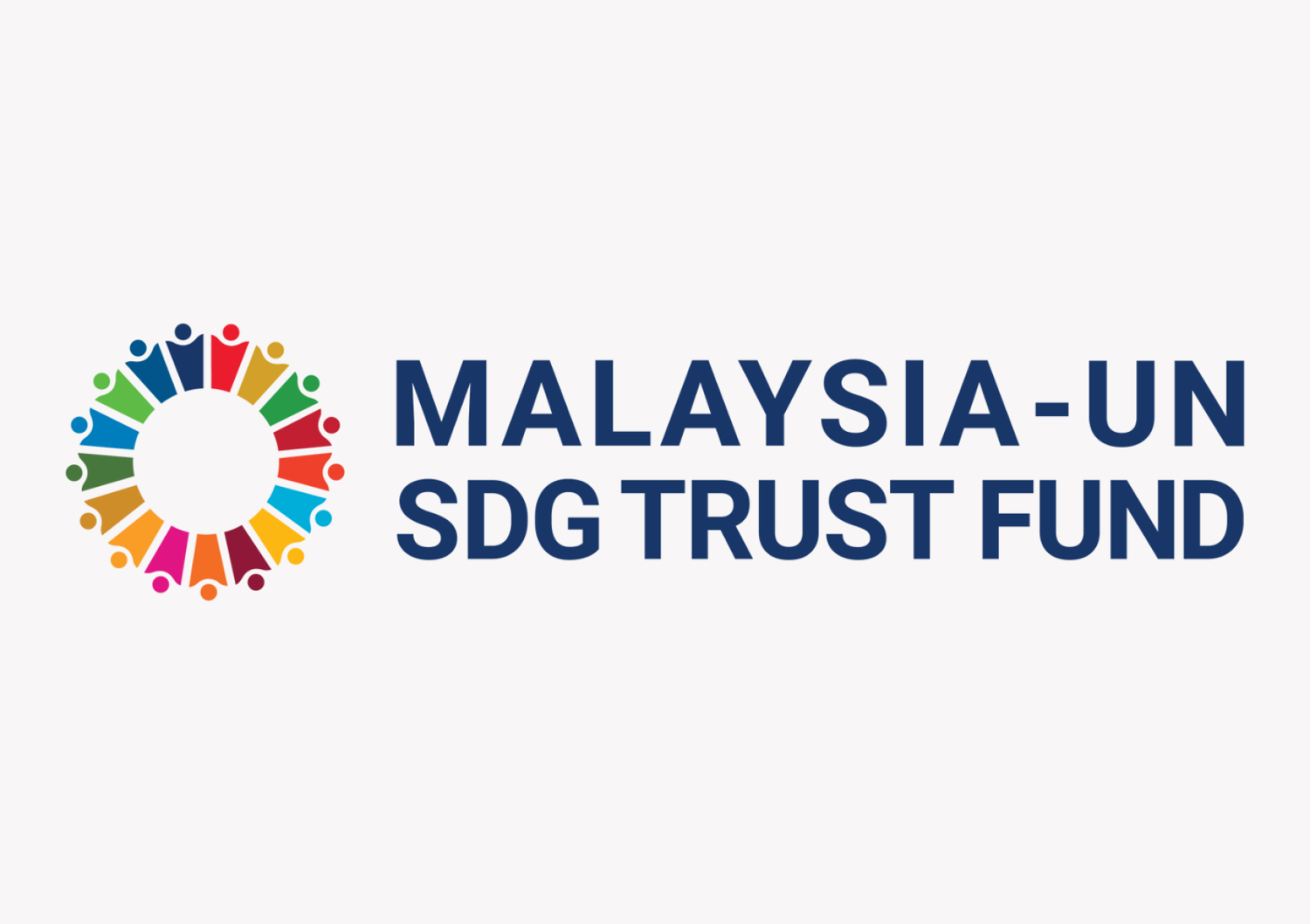
CLOSED: Call for Proposals 2023-Malaysia-UN SDG Trust Fund
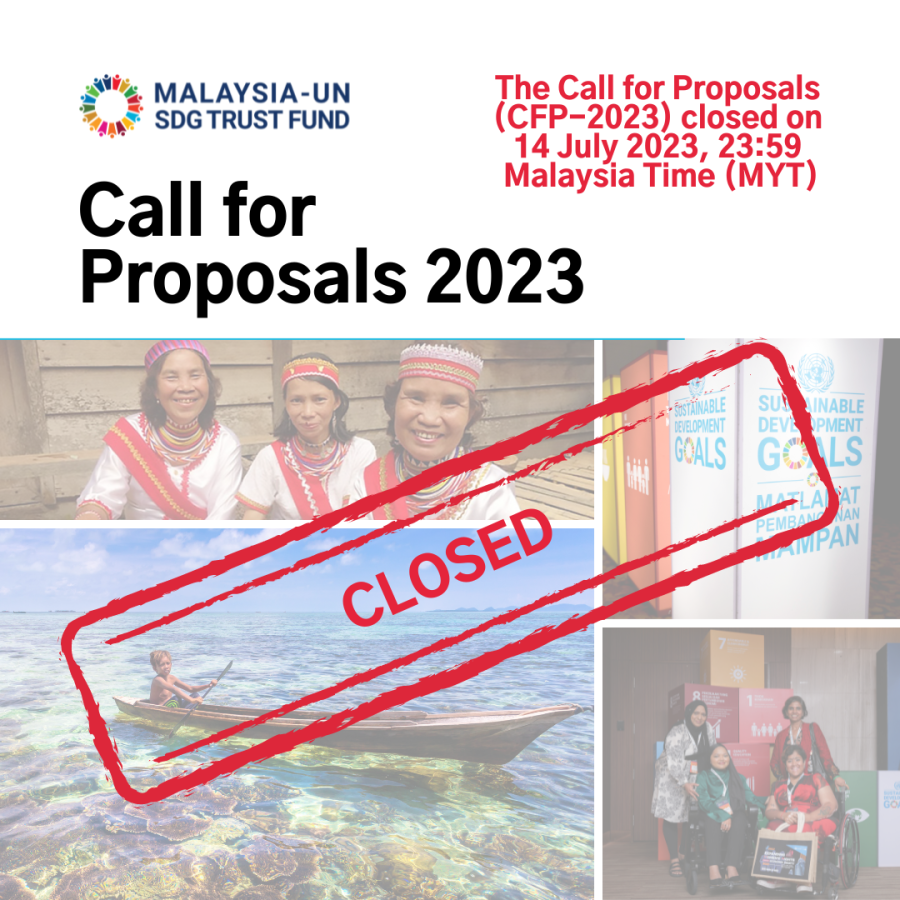
Introduction to the Malaysia-UN SDG Trust Fund
The Malaysia-UN SDG Trust Fund (Fund) is a partnership between the United Nations (UN) in Malaysia and MySDG Foundation, supported by the Ministry of Finance. It aims to encourage projects that make a positive impact on the Sustainable Development Goals (SDGs) in Malaysia.
The Fund supports projects that target people and communities who are at risk of being left behind. It encourages partnerships and collaboration across all sectors of society to ensure sustainable development benefits everyone. By focusing on local efforts, the Fund aims to improve the lives of people in different areas and groups, contributing to overall SDG progress in Malaysia.
The Call for Proposals 2023 (CFP-2023) is an invitation for innovative projects that prioritise a people-centric approach across the Fund’s three pillars and twelve priority areas. Projects should aim to foster multi-stakeholder partnerships in delivery and results through innovative solutions that can help the marginalised and disadvantaged overcome the challenges they face, and promote their inclusion and empowerment.
CFP-2023 in brief
CFP-2023 seeks projects that address national SDG priorities and have a high potential for Leave No One Behind impact, enabling the country to achieve sustainable development for all and deliver on the 2030 Agenda’s principles and goals.
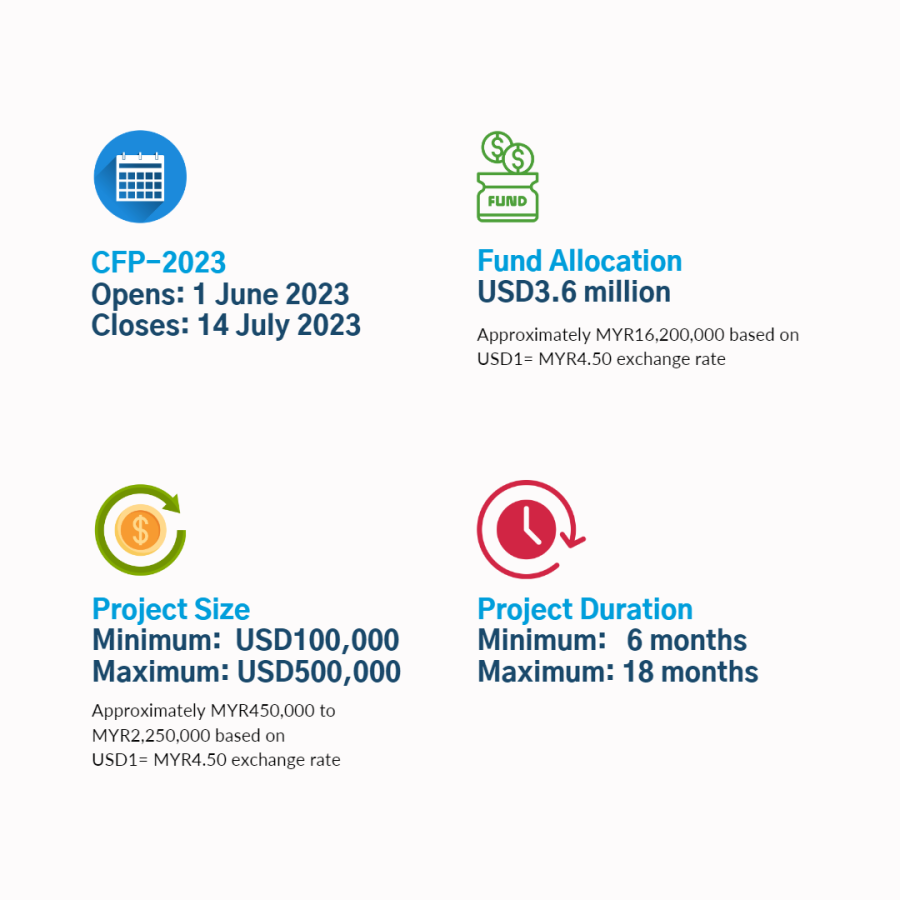
Thematic Pillars
1. People and Prosperity
Priority Areas:
1.a. Promoting an inclusive recovery from the COVID-19 pandemic, addressing the poverty, nutritional and health challenges of affected and marginal and excluded groups (e.g., informal sector workers, the poor and vulnerable in peripheral regions including indigenous peoples, women, youth, migrants and refugees, undocumented persons, and persons with disabilities).
1.b. Levelling up wider SDG performance in key human development domains across regions, focusing on communities in lagging peripheral areas.
1.c. Expanding resilience through greater social protection measures, focusing on excluded and under-served groups and those in informal work.
1.d. Addressing the specific human development needs of women at risk of being left behind.
1.e. Promoting work opportunities to the poor and vulnerable, those in informal work and those in remote locations, via access to skills training, financial services, commercial credit, and to decent jobs.
1.f. Addressing geographical and economic imbalances, especially those faced by communities living in remote locations, including by assisting them to unlock local comparative advantages (natural capital, sustainable exploitation of natural resources and products, enhanced tourism).
2. Planet
Priority Areas:
2.a. Building the resilience of communities (groups and localities) at most risk to the impacts of climate change through active adaptation efforts.
2.b. Tackling biodiversity loss, particularly for marginal communities which rely on the natural capital for their livelihoods.
2.c. Assisting marginal communities to tackle land, sea and river pollution, which blights their living conditions.
3. Peace and Partnership
Priority Areas:
3.a. Helping to build social and political cohesion between Malaysia's diverse communities.
3.b. Enabling the realisation of key socioeconomic rights by marginal and excluded groups (e.g., the poor and vulnerable in peripheral regions including indigenous peoples, migrants and refugees, undocumented populations, and people with disabilities).
3.c. Enabling, within the law, the recognition of undocumented people and their social inclusion.
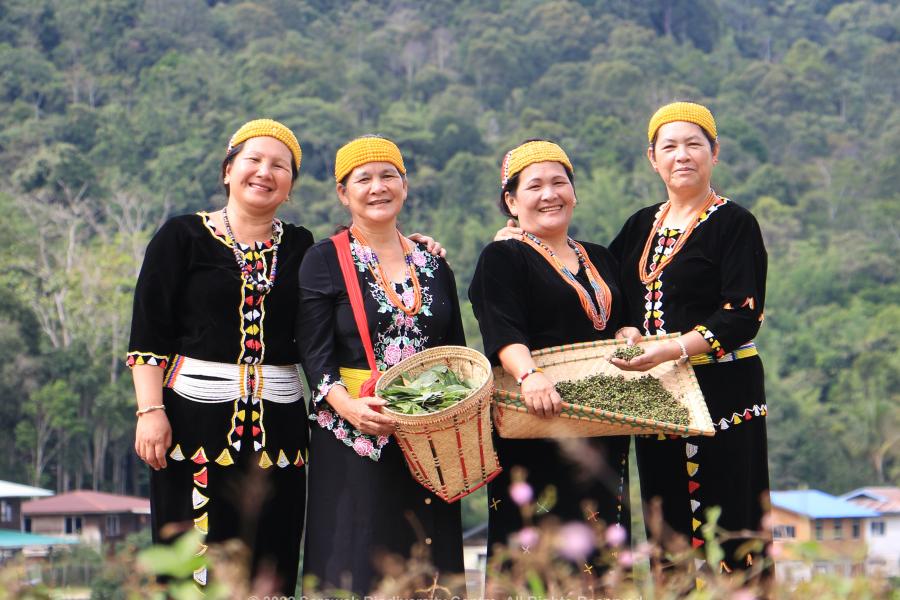
Submission requirements
Eligibility criteria
In line with the Fund’s thematic areas, the CFP-2023 will be open to proposals from:
i. UN agencies which are members of the Malaysia UN Country Team and have been recognised as Participating UN Organisations (PUNOs) in the Fund by endorsing the Fund’s MOU. Proposals submitted by PUNOs must involve at least two UN organisations.
ii. Malaysia-based non-profit organisations such as civil society organisations (CSOs), non-governmental organisations (NGOs), academic institutions and think-tanks. Designated as non-UN organisations (NUNOs), these applicants must be registered in Malaysia. They will also be subject to due diligence procedures as required by UN rules and regulations.
Proposal development and submission
Project proposals should be designed in a clear and organised way, using the Project Proposal Template. A crucial part of the process is developing a Theory of Change, which shows how each project will address the identified challenges and offer practical solutions.
To ensure that projects are people-centric, PUNOs and NUNOs should engage and consult with relevant stakeholders, including implementing partners and project beneficiaries.
Prior to submission, each project proposal must be approved by the applying organisation’s senior management.
Completed project proposal templates, along with all necessary supporting documents, must be submitted electronically to the Malaysia-UN SDG Trust Fund Email by 14 July 2023, 23:59 Malaysia Time (MYT).
Download the Project Proposal Template here. Additional documents required for NUNOs can be downloaded at the end of the page.
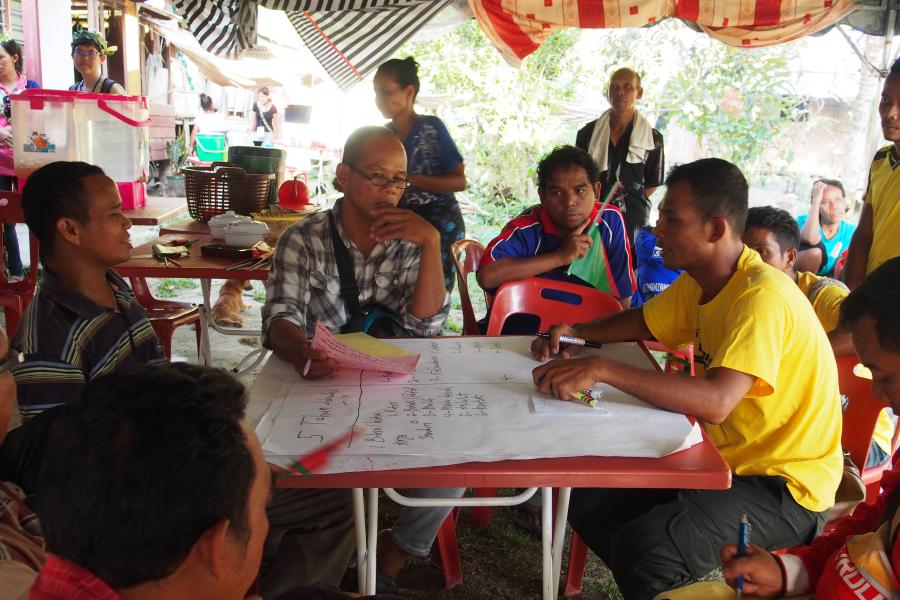
Application process
The CFP-2023 involves a 2-step process:
1. Project proposal:
- PUNOs and NUNOs develop and submit project proposals using the template provided.
- Proposals are assessed and high scoring ones are selected, pending final approval.
2. Project document:
- Selected proposals must be further developed into project documents, using the Project Document Template (to be provided in due course).
- Prior to project document submission, PUNOs and NUNOs must meet all other relevant requirements. This includes making any adjustments to the project and following necessary administrative steps.
Evaluation and selection process
Proposals will be evaluated according to a set of substantive and delivery criteria:
Substantive criteria make up 70% of the initial scoring and include:
i. Level of alignment with the Fund’s thematic priorities listed under the three pillars above, with weight given to the span and depth of the targeted SDG impacts.
ii. Level of focus on vulnerable communities and groups at risk of being left behind (e.g., the unemployed and informal sector workers, indigenous people, women, youth, people with disabilities, older persons, migrants, refugees, stateless and undocumented persons etc.).
iii. Extent of the wider catalytic impact generated (spillovers, scalability potential, demonstration effects etc.), linking also to the promotion of a whole-of-society approach to SDG achievement.
iv. Alignment with the UN Sustainable Development Cooperation Framework (UNSDCF) for Malaysia, and/or with Malaysia’s national development priorities.
Delivery criteria make up a further 30% and include:
i. Level of jointness in delivery, i.e., multi-partner participation in project execution.
ii. Level of stakeholder engagement, particularly of targeted at-risk groups. The application of people-centric design methods and the integration of a whole-of-society approach will be viewed favourably.
iii. Quality of planning and management arrangements, including risk assessment and response.
iv. Quality of monitoring and evaluation (M&E) and follow-up, and reporting arrangements (internal and external), with appropriate levels of oversight.
v. Clarity of project time frame, milestones, and resource requirements, noting:
(1) minimum project duration is 6 months, and maximum is 18 months, with framing appropriate to the tasks required; and
(2) a resource requirement of a minimum of USD200,000 for project proposals by PUNOs (a minimum of USD100,000 per PUNO) and of USD100,000 for project proposals by NUNOs. The maximum budget per project must not exceed USD500,000.
CFP-2023 Flow
Stage 1: Project Proposal Submission and Selection
- Call for Proposals open for 6 weeks
- Completion of pre-vetting checklist by NUNOs
- Development and submission of Project Proposals by applicants
- Confirmation of receipt of Project Proposals
- Assessment of Project Proposals
- Notification to applicants of project selection, pending final approval (6-8 weeks from CFP-2023 closing date)
Stage 2: Project Document Submission and Approval
- Selected projects: development and submission of Project Documents (5 weeks)
- HACT assessment and full vetting process undertaken by the Secretariat
- Confirmation of receipt of Project Documents
- Review of Project Documents
- Notification to successful applicants of final project approval (3-4 weeks from Project Document submission)
Stage 3: Disbursement and Project Commencement
- Signing of NUNO Framework Agreement and NUNO Financing Agreement by NUNOs
- Disbursement of funds in US dollars via bank transfer
- Commencement of projects
Stage 4: Monitoring and Reporting
- Periodic project monitoring and evaluation
- Submission of Narrative Report(s) and Financial Report(s) at set intervals
- Submission of Final Narrative Report and Final Financial Report upon project completion
Special requirements for Non-UN organisations (NUNOs)
Based on the information provided above, NUNOs will undergo a due diligence process consisting of the following steps:
Download the Project Proposal Template here
1. Completion of a pre-vetting checklist and submission of required documents along with Project Proposals.
The NUNO Pre-vetting Checklist is available here
The PSEA Assessment for NUNOs Template is available here
2. Selected applicants will be invited to proceed to the next stage and submit project documents. During this stage, they may undergo the UN's Harmonized Approach to Cash Transfers (HACT) assessment process. To be eligible, applicants need to receive a "low risk" rating.
Guidelines on Harmonized Approach to Cash Transfer (HACT) Framework are available here
3. Following final approval, NUNO applicants will be required to sign the NUNO Framework Agreement, and the NUNO Financial Agreement before any funds can be disbursed to them.
The Framework Agreement for Participation of Non-United Nations Organisations (NUNO) is available here
The Non-United Nations Organisations (NUNO) Financing Agreement is available here
Malaysia-UN SDG Trust Fund Secretariat
c/o Office of the UN Resident Coordinator (UN RCO)
United Nations Offices

















